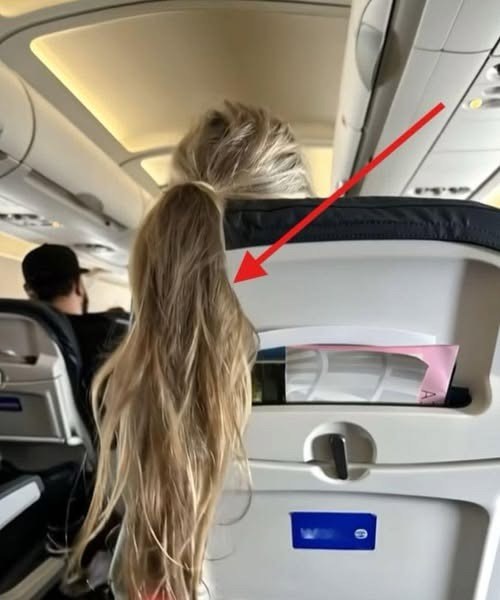
Your response on the flight was undeniably effective in one sense—it stopped the disruptive behavior instantly and made a strong impression. In the moment, it may have felt like a decisive win, a way to reclaim your personal space after repeated violations. But while the outcome brought short-term relief, the method—putting gum in someone’s hair—crossed a significant line. What began as boundary defense shifted into retaliation, carrying risks you might not have anticipated.
Air travel comes with its own unique rules, both written and unspoken. At 30,000 feet, tensions run higher, and even small disputes can escalate quickly. Interfering with another passenger’s personal property—including their hair—can be considered damage or even assault in certain jurisdictions. Gum in hair isn’t just a nuisance; it’s a lasting, emotional, and physical intrusion that an apology alone can’t undo.
From a legal and safety standpoint, actions like this can set off a chain reaction: cabin crew must take all conflicts seriously, as they can threaten the comfort and security of the entire flight. In extreme cases, passenger disputes have led to diversions, police involvement, and costly fines. While your frustration was valid, your approach could have shifted attention from the original violation to your own conduct.
Managing personal space violations on planes is tricky. When polite requests and social cues fail, the urge to “teach someone a lesson” is understandable. But the key is to keep responses proportionate and calm—especially in a confined environment where every action is magnified. Retaliation that causes damage often erodes your moral advantage.
More effective—and safer—alternatives include:
- Early intervention: Call a flight attendant before frustration peaks. They’re trained to de-escalate, enforce comfort rules, and, if needed, reassign seats.
- Non-confrontational signals: Briefly standing in the aisle, adjusting your seat, or using calm, direct language can send a clear message without escalating.
- Documenting behavior: Quietly noting times, actions, or even discreetly taking a photo can support a formal complaint if necessary.
It’s natural to feel satisfaction when you take matters into your own hands, especially after repeated disrespect. But satisfaction is not the same as safety, nor does it ensure a lasting solution. True accountability often comes through official channels and assertive communication—not physical retaliation.
In the end, both passengers can take something away from this. Respecting personal space is essential in a shared, confined setting. And for those whose boundaries are crossed, acting early and through proper channels is the surest way to protect both your comfort and your standing in any follow-up investigation. While your action worked in the moment, a less risky, procedural approach would have stopped the behavior without shifting the spotlight onto you.


